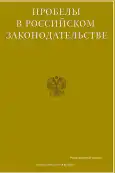Countering the Spread of Radical Ideologies in Social Media
- Authors: Abazov I.S.1
-
Affiliations:
- North Caucasus Institute for Advanced Studies (branch) of the Krasnodar University of the Ministry of Internal Affairs of Russia
- Issue: Vol 15, No 5 (2022)
- Pages: 105-109
- Section: Articles
- URL: https://bakhtiniada.ru/2072-3164/article/view/147599
- ID: 147599
Cite item
Abstract
The purpose of this study is to examine the destructive influence of social media on today's youth. It has been established that the Internet, on the one hand, although in many ways facilitates the daily life of people, at the same time it is a platform for broadcasting negative phenomena in society. The objectives of the study are to analyze the possibilities of social media, where recruiters to destructive ideologies carry out their activities. Social media facilitate the unhindered exchange of information under conditions of complete anonymity, both the recruiters and the users of the resources. At the same time, the subjects of this connection can be as far away from each other as they want. It was found that mainly adherents of destructive groups become candidates with unrealized needs: in domination (to express leadership positions); in internal security; in confirmation of their own values; in understanding, sympathy and mutual understanding. Conclusions: The study was able to establish the reasons for the involvement of young people in radical groups and formations, as well as to summarize the stages of such involvement. We also found that the recruiters most often have nothing to do with radical ideology, and their activities are aimed solely at obtaining financial remuneration. They conduct their activities in online communities through the technology of "online recruiting", the effect of which is aimed at involving the object of recruitment in various discussions, so that on a subconscious level they develop an approval of illegal actions and radical views. Subsequently, after psychological processing, recruiters redirect the candidate to another information resource (website, blog, forum, chat room) in order to establish even closer contact and begin discussing prospective cooperation.
Full Text
##article.viewOnOriginalSite##About the authors
Islam Sultanovich Abazov
North Caucasus Institute for Advanced Studies (branch) of the Krasnodar University of the Ministry of Internal Affairs of Russia
Email: abazov.70@mail.ru
police lieutenant colonel, senior lecturer at the Department of Internal Affairs in special conditions Nalchik, Russia
References
- Abazov A.B. Preventive measures to counter radicalism and extremism in the youth environment // Journal of Applied Research. 2021. Т. 2. № 5. pp. 168-171.
- Abazov I.S. Features of manifestations of extremism and terrorism in the global network of the Internet // In the collection: Best scientific paper 2021. Collection of articles of the International scientific research competition. Penza, 2021. pp. 133-136.
- Gubzhokov A.Kh. Youth radicalism: nature and ways of counteraction // Journal of Applied Research. 2021. Т. 4. № 3. pp. 74-77.
- Zhusupova G.B. Technologies of involvement of youth in terrorist and extremist activity // Nauka. 2020. № 2 (65). pp. 61-66.
- Keldasov T.D., Kurochkin B.N. Recruitment of Russian Youth by Extremist Organizations // Modern Scientist. 2019. № 4. pp. 310-314.
- Kiikbaeva K.R., Kiikbaeva A.R., Safarov V.R. Forms and methods of counteracting the recruitment activities of Russian youth // Modern scientific research and development. 2018. № 12 (29). pp. 433-435.
- Mukhtarov D.D., Kushkhov Kh.L. Technologies of youth involvement in extremist activity: new challenges and ways of counteraction // Journal of Applied Research. 2022. Т. 1. № 3. pp. 72-75.
- Odintsov A.V. Network communicative technologies of prevention and prevention of development of destructive ideological movements in modern information society // Humanities in XXI century. 2016. No. XXXIV. pp. 41-47.
- Polivara T.V. Countering the ideology of extremism in social networks // In the collection: Civil Peace - Civil War: Reflection and Forecasts. Materials of the international scientific conference. Edited by V.M. Dobroshtan. 2018. pp. 194-197
- Tarchokov B.A. Measures to counter the spread of terrorist threats in the global media space with modern information tools // Problems of Economics and Legal Practice. 2020. Т. 16. № 3. pp. 212-215.
- Churilov S.A., Bykadorova A.S. On countering the spread and prevention of radical ideologies in the youth environment and the Internet // Review. 2016. № 8. pp. 39-43.
- Shiller V.V. Internet and virtual social networks as a tool for recruitment of adherents to extremist organizations: basic algorithms and technologies // Political Institutions and Processes. 2016. № 4. pp. 57-65.
Supplementary files








